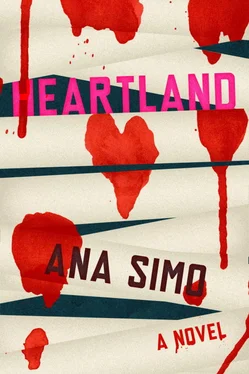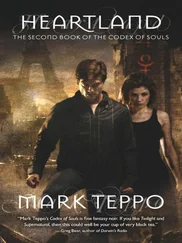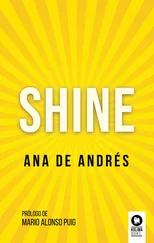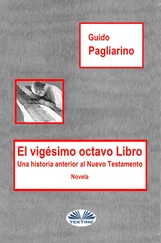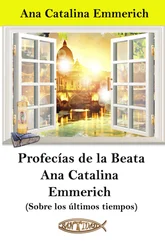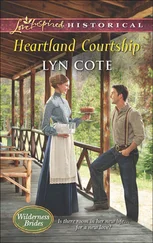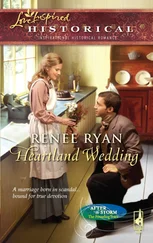She howled and rocked him in her arms all night. I did not dare get near her. He was dead. What could I do? I cleaned the Mauser, inside and out, and put it back in the cabinet. The other bullet was still in my pocket. From the dining room, I kept watch on them. Waiting for her to fall asleep or quiet down, so I could pry him away. Her, I could not comfort. She was suffering for the three of us. Me, I felt nothing. That’s how great my grief was. Stuck in my inner freezer. I sat on the floor, too, wrapped in a blanket when it got too cold. It seemed indecent to sit on chairs. Her howling became almost a screech at one point, a growl at another, a murmur, wail, whimper, scream, cry. This was her native language. She was eloquent in it. I began to understand it. Animal sounds are coarser than words, but more moving. “Exalted and sanctified,” she wailed. With her intestines, “May his salvation blossom.” With her lungs, “Exalted and honored, elevated and lauded.” With her stomach, growling, “In the world which will be renewed.” Rafael could recite the Hail Mary backward, “thee with is Lord the, grace of full, Mary Hail.” Rafael and I took our first communion together. His grandfather, Moisés, still alive in La Esperanza, did not get a picture. He was not supposed to know. He hates priesters, Rafael said. Ezequiel had been baptized in secret by his mother, “just in case,” but had refused the First Communion. He did not know how to pray.
I must have dozed. How long, I don’t know. It was less black outside, but not yet dawn. The house was silent. The kitchen lights were off. She was still sitting there, with him. Their shapes were visible in the dark-grey half-light. She was moving in place, jerking her elbows. Small movements. There were sounds, too, soft sounds. Could he be alive? I crawled to the threshold of the kitchen, for a better view. She was putting something in her mouth and tearing it with her teeth. It was his arm. I fled to the icehouse, wrapped in my blanket. In a corner, away from the pyre, I lit a small fire. My stomach wanted to vomit. I didn’t. I won. In the morning, I returned to the house. All I could manage was a quick glance through the kitchen window. She was still sitting in the same spot. Chewing. His limbs and head had been ripped from the trunk. She was now pulling out his intestines. I ate snow. It was my sedative. Several times that day I returned to the kitchen window. Each time I was able to watch a little longer. By nightfall, not much of his body was left. The last time I peeked she wasn’t there. Neither was he. The stove and the table seemed to float in the grey twilight. A charcoal shadow was visible on the floor. She crossed in front of the window, barely missing me. From behind a tree, I saw her haul two heavy black garbage bags to the icehouse. Soon smoke was coming out through the icehouse roof. She tended the fire for a while before returning to the house. The lights went on in her bedroom. She drew the curtains across the windows. My feet were numb. I couldn’t stay outdoors any longer. I was still afraid of her, but physical pain often trumps common sense, as any torture subject will confirm.
The kitchen stank like a slaughterhouse. A faint smell of bleach could not mask the stench of blood and feces. I barricaded myself in Rafael’s room. I drank some of his orange juice. When that did not make me heave, I ate his saltine crackers. I have been on a saltine cracker diet ever since. It’s all I can eat. He had left his wallet, keys, and wedding ring on the night table. Inside the wallet I found a picture of the three of us at a school picnic. I am lounging on the grass, with my head on Glorita’s lap and my gaze sourly fixed on something to the side. She is leaning with her back against a tree trunk and looking straight at the camera. He is standing slightly behind her, looking at me. She is tanned and radiant in her yellow halter top, cutoffs and big hoop earrings. He and I are not as ugly as I remembered. We are just scrawny and tense. He is cross-eyed behind his cheap plastic eyeglasses. That is not visible in the picture, but I know. Four deep white creases show that the picture has been folded in his wallet for a long time. The date is 1976. We were not yet twelve.
I picked up his car keys with a tissue and stuck them in the blue sedan’s ignition. The photo, the ring, and the other keys I hid behind the old furnace, along with his notebook, and Mrs. Crandall’s scarf and Shangri-La logbook. They still must be there. His empty suitcase and his briefcase were gone. Had she also thrown them in the pyre? Wrapped in Mrs. Wilkerson’s parka, I ventured to the icehouse shortly before sunrise. The pyre was still burning. It was now shorter, blacker, and wider. Only a charred bit of femur was visibly human. The rest of his remains must have been sandwiched in the middle of the pyre to ensure incineration. I added more wood to the pyre. The sun came out. Light vibrated in the dark-blue winter sky. A few fat robins sauntered on the holly branches. It was one of those perfect winter mornings that made my mother weep, so rare and splendid were they in this new land. For the past thirty-one hours, my mind had been empty of all thought or feeling. Fear, repulsion, cold, nausea, painful feet were all bodily reactions, like when you cut off a lizard’s tail and it keeps jerking. All I knew was what I saw, heard, touched and smelled. Looking at the luminous sky I felt sorry for McCabe. Why had she done any of this? She had not killed him. I had. A warm and dense fluid filled me, clogging my nose. I couldn’t breathe. Pity is entirely physical when you experience it for the first time so late in life. As I made my way back to the house and slowly up the stairs to McCabe’s bedroom, fear and pity racked me, neither strong enough to dislodge the other. I stopped several times to catch my breath. Her door was slightly ajar. She was sitting by the window. Her hair was still wet from the shower. She was wearing jeans, grey socks, and her red plaid shirt. All clean. Her boots, shiny, were by the radiator. The flowers still looked fresh in their vases. The room smelled good. She must have burned her bloody clothes, I thought. McCabe turned her head toward me. “I’m sorry,” I said and she nodded.
I saw the car as it crossed the Elmira Bridge. Long before it started coming up Round Hill. I knew immediately it was them. I ran upstairs to warn McCabe. We still had time to escape through the farmland in back. I hesitated in front of her door, my arm raised, about to knock. I can’t remember exactly what went through my mind. It was such a long time ago. Maybe I thought her wealth would protect her. I do remember turning around, and hiding in the cellar. From there, I saw McCabe being taken out of the house with her arms handcuffed behind her back. Her head was covered in blood. They had beaten her up brutally, as they always do when they first get you. They would torture her. One State Security henchman kicked her in the back. She fell face down on the snow. Then all three kicked her and stomped on her until they fell on their knees, breathless and exhausted. No sound came out of her. They remained there for a few seconds, kneeling around the majestic fallen figure as in adoration. Then they slowly dragged her to their car, leaving a red trail in the snow.
The house was searched many times over the next few weeks. They never found me. The closest they got was when one of them shone a light under the Judge’s bed. I flattened myself inside a crack. What’s that thing?” he said.
Ana Simo is the author of a dozen plays, a short feature film, and countless articles. A New Yorker most of her life, she was born and raised in Cuba. Forced to leave the island during the political/homophobic witch-hunts of the late 1960s, she first immigrated to France, where she studied with Roland Barthes and participated in early women’s and gay/lesbian rights groups. In New York next, she co-founded Medusa’s Revenge theatre, the direct action group the Lesbian Avengers, the national cable program Dyke TV, and the groundbreaking The Gully online magazine , offering queer views on everything. Heartland is her first novel.
Читать дальше
